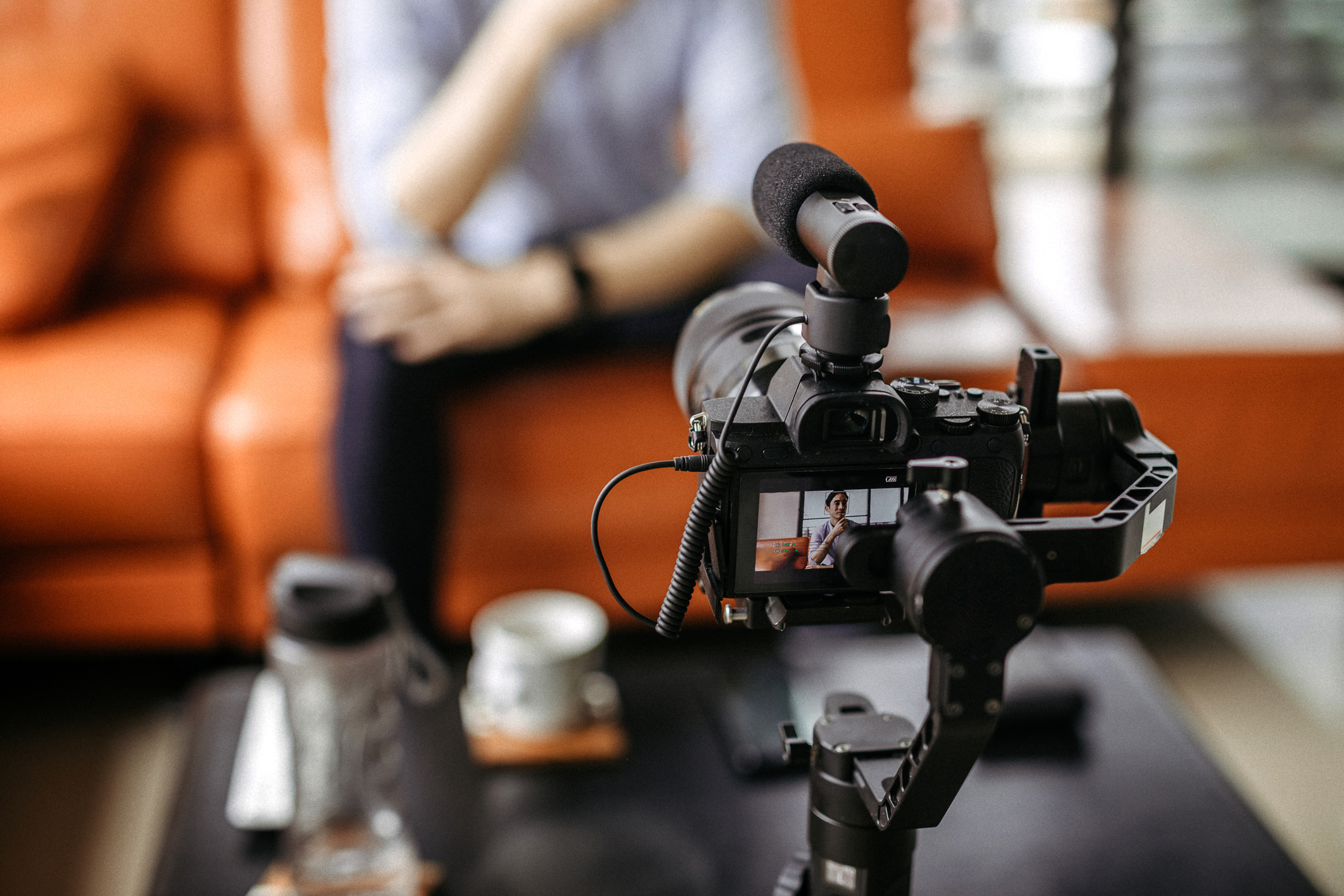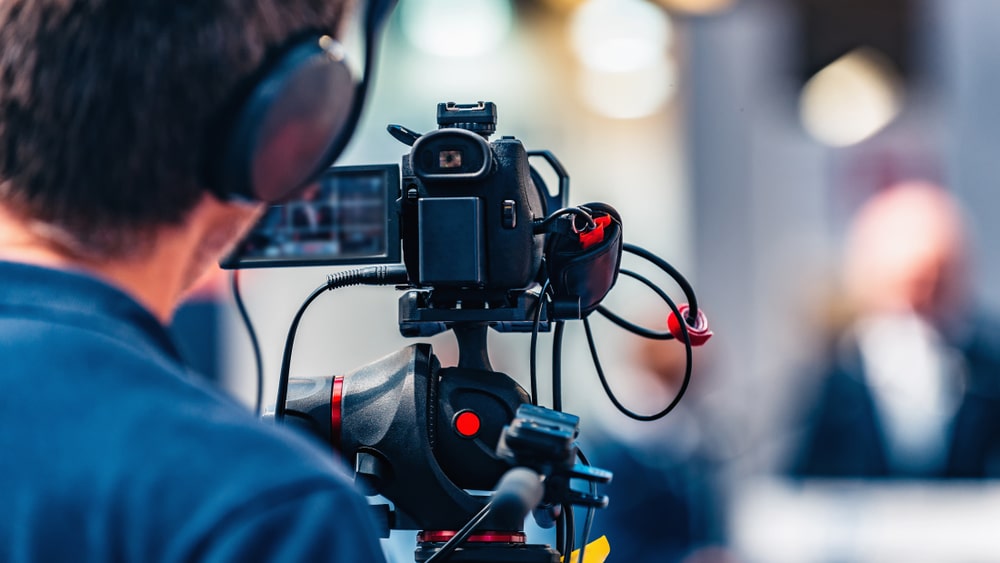A detailed comparison of traditional vs legal video depositions
Wiki Article
The Importance of Legal Video Clip Depositions in Modern Legal Providers: What You Ought to Know
Legal video depositions have become important in today's lawful landscape. They supply a multidimensional view of witness statements that conventional transcripts merely can not match. By catching both non-verbal and spoken communication, these depositions enhance the overall understanding of a witness's trustworthiness. Nevertheless, the effectiveness of video clip depositions rests on various factors, consisting of compliance with legal requirements and ideal methods (legal video depositions). Exploring these elements exposes their true importance in modern-day legal solutionsWhat Are Legal Video Clip Depositions?
Lawful video clip depositions work as an essential device in the litigation procedure. They entail videotaping witness testimonies in a video clip style, recording both non-verbal and verbal interaction. This technique enables lawyers to record the behavior, expressions, and reactions of witnesses, supplying a richer context for the testament. Generally carried out in a controlled atmosphere, these depositions are led by attorneys who ask concerns while a court reporter documents the dialogue. The resulting video can be vital for test preparation, as it makes it possible for lawyers to evaluate the reliability of witnesses and fine-tune their methods. In addition, lawful video clip depositions can be made use of in various legal contexts, varying from civil disagreements to criminal instances. The aesthetic and acoustic components of video depositions enhance the presentation of evidence, making it an important component in the modern legal landscape. On the whole, they add significantly to the effectiveness and efficiency of legal process.
Benefits of Video Clip Depositions Over Traditional Methods
Video depositions provide many benefits compared to conventional approaches of taking witness statements. One substantial advantage is the capacity to capture both visual and audio aspects, providing a more thorough document of the witness's declarations. This twin format boosts quality and enables legal professionals to reference specific subtleties throughout trial prep work. Furthermore, video clip depositions assist in remote involvement, making it easier for witnesses who may be inaccessible for in-person appearances as a result of geographical restraints or wellness issues.Moreover, video depositions can accelerate the general deposition process, decreasing the time and costs related to traveling and logistics. They likewise boost access, as videotaped depositions can be quickly shared among lawful teams and referenced at any kind of time. This comfort contributes to far better case monitoring and prep work. In general, video clip depositions represent a modern, efficient method to collecting witness testaments, straightening with the evolving requirements of the lawful profession.The Duty of Body Language and Tone in Testimonies

In legal video clip depositions, body language and tone play crucial roles in communicating a witness's credibility and dependability. Nonverbal signs can provide insights right into a witness's emotional state, affecting exactly how their testimony is regarded. Recognizing the impact of these components is important for jurors and attorneys alike when examining the integrity of a testimony.
Nonverbal Communication Insights
While verbal communication is typically stressed in legal testaments, nonverbal cues such as body language and tone play a vital role in sharing credibility and feeling. Viewers of depositions may note that a witness's stance, motions, and faces can substantially affect assumptions of integrity. Consistent eye contact might signal self-confidence, while staying clear of stare can recommend deceit or discomfort. The tone of voice-- its pitch, quantity, and speed-- can present sensations of sincerity or unpredictability. Attorneys must be attuned to these nonverbal signals, as they usually give vital context that enhances spoken words. Understanding these nuances can enhance the performance of depositions and influence the outcome of lawful proceedings.Psychological Tone Impact
The psychological tone conveyed throughout legal testaments significantly impacts just how a witness is perceived. Body movement, singing inflections, and faces play important duties in shaping the story of a testimony. A witness showing self-confidence through stable eye contact and a tranquil tone can impart a feeling of integrity and involvement. On the other hand, indicators of stress and anxiety, such as fidgeting or a shaky voice, might cause hesitation regarding their account. The nuances of psychological expression can influence the analysis of realities, making it important for legal experts to identify these cues. In video clip depositions, the aesthetic and auditory components integrate, highlighting the significance of emotional tone in sharing sincerity and reliability within the legal procedure.Trustworthiness and Credibility
A vital consider developing reliability and reliability throughout testaments depends on the witness's body movement and tone of voice. Observers typically depend on non-verbal hints-- such as eye call, posture, and gestures-- to evaluate a witness's genuineness. For circumstances, a witness that keeps eye call and displays open body movement might be perceived as more reputable and sincere than one that stays clear of eye call or appears shut off. Furthermore, tone of voice plays an important duty; a consistent, tranquil tone can enhance the credibility of the testimony, while variations in pitch or quantity may raise uncertainties. Eventually, the combination of body movement and vocal tone considerably affects just how a witness's statements are gotten and interpreted in a lawful context.Finest Practices for Performing Video Clip Depositions
Conducting video clip depositions calls for mindful preparation and implementation to guarantee a reliable and clear presentation of testimony. It is crucial to pick a peaceful, well-lit area to reduce distractions and safe optimum video top quality. The equipment must be tested beforehand, including electronic cameras, microphones, and lighting, to stay clear of technical problems throughout the deposition.Next, parties entailed must assess the style and procedures in advance, making sure that every person understands their functions. The deponent needs to be briefed on the process, consisting of how to respond plainly and concisely.Additionally, maintaining a specialist disposition throughout the session is essential. This includes avoiding speaking over one an additional and validating that all questions are routed properly. Finally, it is essential to tape-record the deposition in a style that permits very easy playback and review, preserving the integrity of the statement for future usage.Legal Factors To Consider and Compliance Issues
Just how do legal considerations and compliance problems affect the efficiency of video clip depositions? Lawful experts need to browse a complex landscape of regulations, guaranteeing that video depositions comply with jurisdictional rules and standards. Conformity with regulations worrying personal privacy, permission, and tape-recording methods is essential. Acquiring explicit authorization from all events included is required read review to avoid lawful repercussions.Additionally, the admissibility of video evidence in court can pivot on compliance with procedural needs. Making sure that the equipment made use of fulfills technical standards is also vital, as bad quality can threaten the deposition's reliability.Moreover, attorneys must understand any type of specific state regulations that control video clip depositions, as these can vary considerably. Failure to resolve these considerations can not just endanger the honesty of the deposition however also influence the overall instance technique, inevitably impacting the customer's legal results.How Video Clip Depositions Influence Jury Assumption
While video depositions can offer as powerful devices in legal process, their influence on court perception is substantial. The visual and auditory aspects of video clip recordings provide jurors with an extra comprehensive understanding of witness temperament, trustworthiness, and psychological reactions. This multimedia strategy can improve the jurors' ability to analyze the reliability of statement contrasted to typical text-based transcripts.Moreover, video clip depositions allow jurors to observe body movement, tone of voice, and faces, all of which can impact their analysis of the witness's declarations. The presence of a witness on screen can humanize them, promoting compassion and link, which may sway jurors' opinions. On the other hand, a witness that shows up undependable or evasive on video might lead to unfavorable assumptions that affect a jury's choice. Eventually, the vibrant nature of video depositions plays an important duty in forming exactly how jurors translate evidence and reach their decisions.The Future of Video Clip Depositions in Legal Practice
As innovations in innovation continue to improve the lawful landscape, the future of video clip depositions is positioned for substantial advancement. Technologies such as expert system, online fact, and boosted video clip conferencing devices are expected to streamline the deposition process and enhance availability. Legal experts might make use of AI-driven analytics to analyze witness reliability and situation strength more effectively.Moreover, the assimilation of virtual reality might enable juries to experience immersive simulations of depositions, offering deeper context and understanding. In addition, the pattern toward remote depositions is likely to linger, using greater flexibility for lawyers and clients alike.As remote job ends up being significantly normalized, video clip depositions will likely come to be conventional practice, review reducing prices and time restrictions connected with typical techniques. Overall, these technical developments assure to improve the efficiency, performance, and ease of access of video clip depositions in legal practice, ultimately changing exactly how lawyers plan for trial.Regularly Asked Questions
Exactly How Much Do Legal Video Clip Depositions Normally Price?

Can Video Depositions Be Made Use Of in Any Type Of Kind Of Case?
Video depositions can be made use of in various sorts of instances, including civil, criminal, and family members regulation. Their flexibility permits attorneys to present witness testimonies successfully, adjusting to the particular requirements of various lawful situations.What Devices Is Required for a Video Deposition?
To conduct a video deposition, necessary tools includes a premium electronic camera, microphone, lighting, and a reputable recording gadget. In addition, a computer system with editing software might be needed for post-production and formatting the last video.How much time Does a Common Video Clip Deposition Last?
A regular video clip deposition lasts between two to four hours, depending upon the intricacy of the instance and the variety of inquiries postured. Extensive sessions may occur, however breaks are generally integrated for participant comfort.

Are Video Clip Depositions Admissible in Court?
Video clip depositions are usually admissible in court, offered they follow lawful standards and guidelines of evidence. Their usage improves clarity and protects witness testament, aiding in the judicial process during tests and hearings. Legal video clip depositions have actually become best site crucial in today's lawful landscape. In addition, legal video clip depositions can be used in various legal contexts, ranging from civil disputes to criminal instances. Additionally, video clip depositions assist in remote engagement, making it less complicated for witnesses who may be not available for in-person looks due to geographical restrictions or wellness issues.Moreover, video clip depositions can expedite the total deposition procedure, minimizing the time and expenses linked with travel and logistics. Ensuring that the equipment utilized satisfies technological requirements is additionally crucial, as bad top quality can weaken the deposition's reliability.Moreover, attorneys should be mindful of any type of specific state legislations that govern video clip depositions, as these can vary greatly. Additionally, the pattern toward remote depositions is most likely to persist, using greater versatility for attorneys and clients alike.As remote job ends up being increasingly stabilized, video clip depositions will likely become typical method, lowering costs and time restraints associated with standard approaches.Report this wiki page